🙈 Your Ignorant Mind

A couple of years ago, one of the best violinists of the world, Joshua Bell, participated in an experiment.
The artist, whom people easily spend 500 dollars to see in a concert hall, was playing in the entrance of a subway station. He selected some of the most exciting compositions for his unusual “concert” and played them with the same virtuosity and passion on his three million dollar Stradivarius that he played with at his highly paid concerts.
The results of this forty-five-minute experiment were eye-opening if not surprising for many: hardly any of the more than 1000 people who passed him during this time noticed him, even though the music was loud and clear. A very few listened for some seconds or minutes, and only a couple of people gave money.
There are several aspects to this situation. However, two of them struck me:
- There was a lottery booth directly beside the musician where people constantly lined up to buy their lottery tickets. None of these people, who were in fac ...
☹️ Do You Give Up Too Early?

One of the most important characteristics of great achievers is their persistence and resilience. Those who you see in the limelight today virtually never succeeded just because of ONE strategy or ONE plan. They succeeded because they constantly see setbacks as a chance to try something new.
I’m sure you know this as common sense. Here comes the twist for you as a business leader:
We all can train our capabilities to be resilient.
However, instead, what most companies do is exactly the opposite: they try to squeeze their people into a one-trial-no-mistakes culture.
Even if a zero-tolerance policy makes sense for ensuring predictably high quality, it also kills the motivation and even the capabilities of your people to be persistent and resilient enough to manage strategic changes. Why? Simply because the mental muscle is not trained. It is like a corset: tensed up muscles will become stunted.
A significant number of businesses suffer from the incapability of their managers to s...
💪 How To Become Mentally Stronger
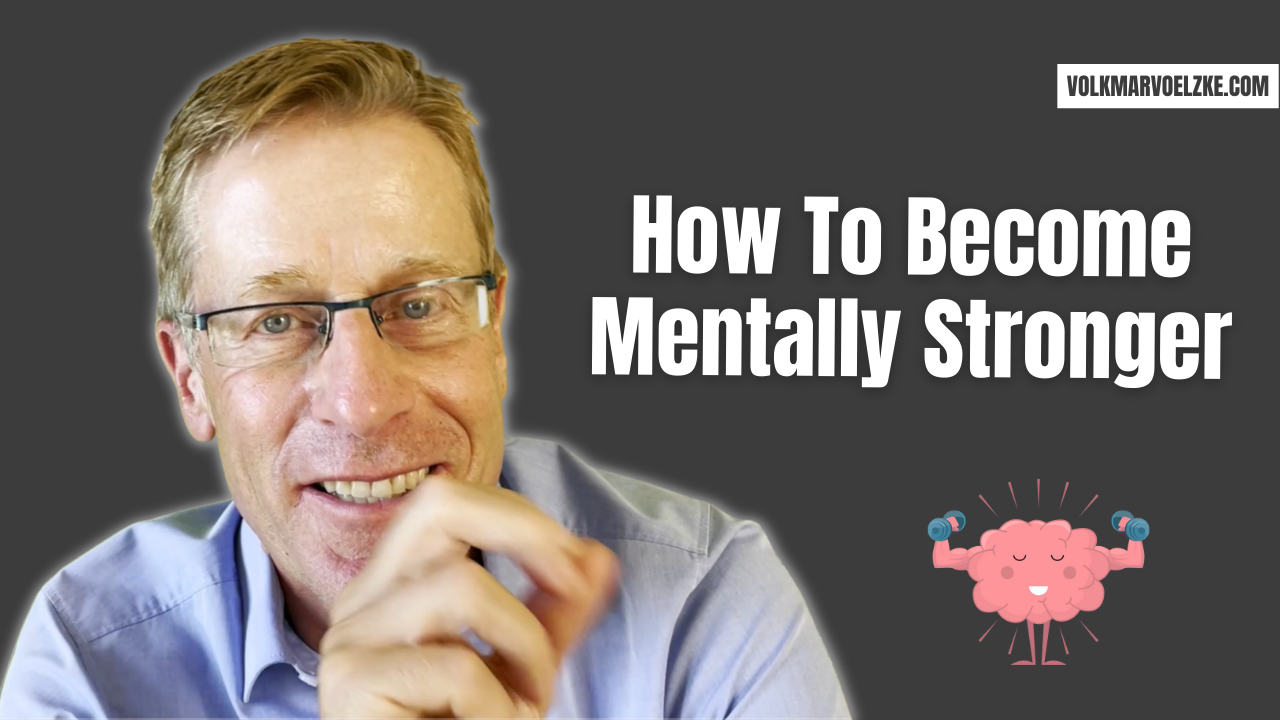
Mental strength is one of the most important factors for success in all areas of life - and of course also in leadership.
Many of the root causes for difficulties in leadership and in life lie in mental weakness.
You notice mental strength not only by determination and perseverance, but - much more important - by flexibility and adaptability.
That is, mentally strong people create success with what they have right now, where they are, and with people who are around them right now. They never have the thought, "I'm missing something to success that I can't create."
In other words, energy and attitude do not depend on external circumstances, but solely on one's own decision.
The good news: mental strength can - and should - be trained. Three questions for certain situations, to which one must find the answer, help very well:
-
"What else can this mean?"
Ask yourself or others this question whenever something unexpected happens. After all, as you search for answers, you'll train
...
🌩 Your Cognitive Dissonance
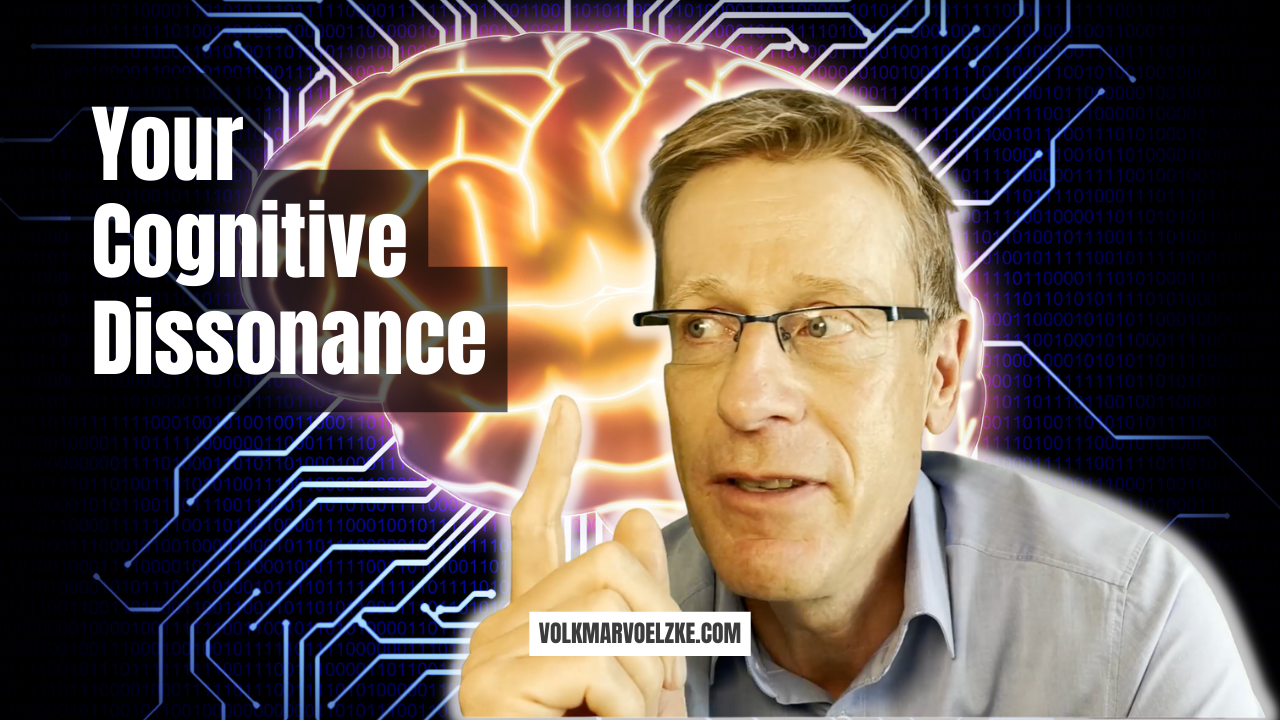
Today we're talking about a common phenomenon that gets in the way of our influence and success more often than we'd like to admit: cognitive dissonance.
This is a term from psychology that describes how, in many cases, when reality does not match our expectations, we prefer to reinterpret reality rather than adjust our expectations.
This can sometimes be useful in the sense that we try everything to change reality according to our goals. But it can also often lead us to disconnect more and more from reality and our environment.
This phenomenon can creep in anywhere and often occurs - but not only - in the executive suites of larger companies.
Why there in particular? Because more personal ego is involved: the more I manifest my expectations and couple them to my personality, the more difficult it is to adjust these expectations. The way out: I choose to interpret reality differently.
Now, as a leader, how can you escape this trap? I recommend three steps:
-
Listening well to o...
🦦 C’mon, You’re Lazy!
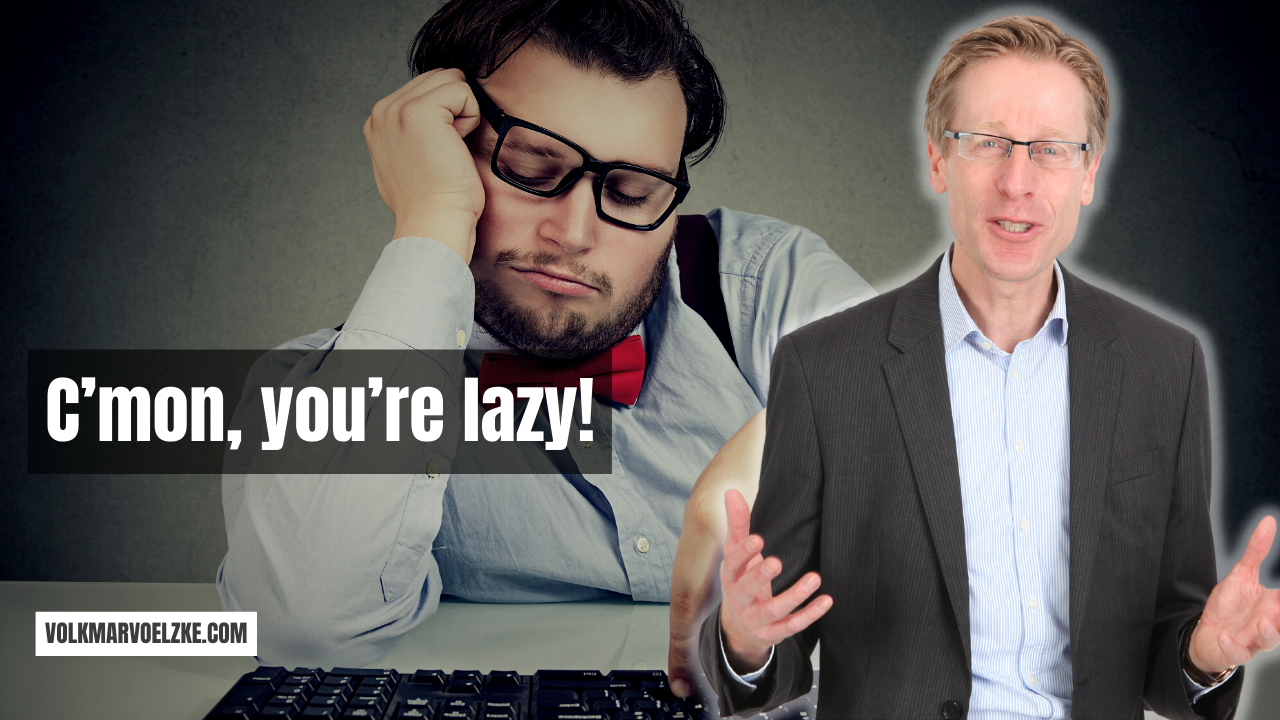
Yes, I risk offending you. Not the first time, though! Sometimes, I call myself a “tough love coach” and here we go: You are lazy! And if that helps you: I am too. So is everybody. Even the hardest worker is lazy.
What do I mean by this?
As you have heard a million times (at least from me), our brain is hardwired to keep us alive. Not to create great work or to be happy.
Not at all, we all prioritize the actions that most likely keep us alive. This instinct is controlled by our subconscious, by our lizard brain. We are not even aware of it.
Here comes my point: Science proves that all conscious thoughts and actual changes in our beliefs and routines require tremendous physical energy in our brain. That’s why a lazy brain is, in this sense, good for survival: it saves energy for more important stuff.
What I observe more often than not in organizations of all sizes is that people are remarkably tired when it comes to changing their beliefs about success and what they could do bet...
💭 How Your Thoughts Drive Your Results

Everything that has ever been created by humans started with a thought.
Thoughts have power. Because they determine what we believe in - our beliefs. Our beliefs, in turn, determine our actions. And our actions determine our results.
In other words: How you think is the most critical building block for your success - whatever "success" means to you.
This is the key difference between those who achieve significantly more and the average: the super-successful have different ways of thinking. This is evident in every biography and documentary.
Simplified you can say: Small thoughts - small results. Big thoughts - big results.
In my observation and experience, most leadership teams think far too small. As a result, potentials are not even considered. They prefer to stick with what they know.
The good news is that you can change the size of your thinking. However, to do so, you have to persistently turn a few screws:
-
Schedule time to think.
Most leaders are so busy that they har
...
😐 Your Inner Conflicts
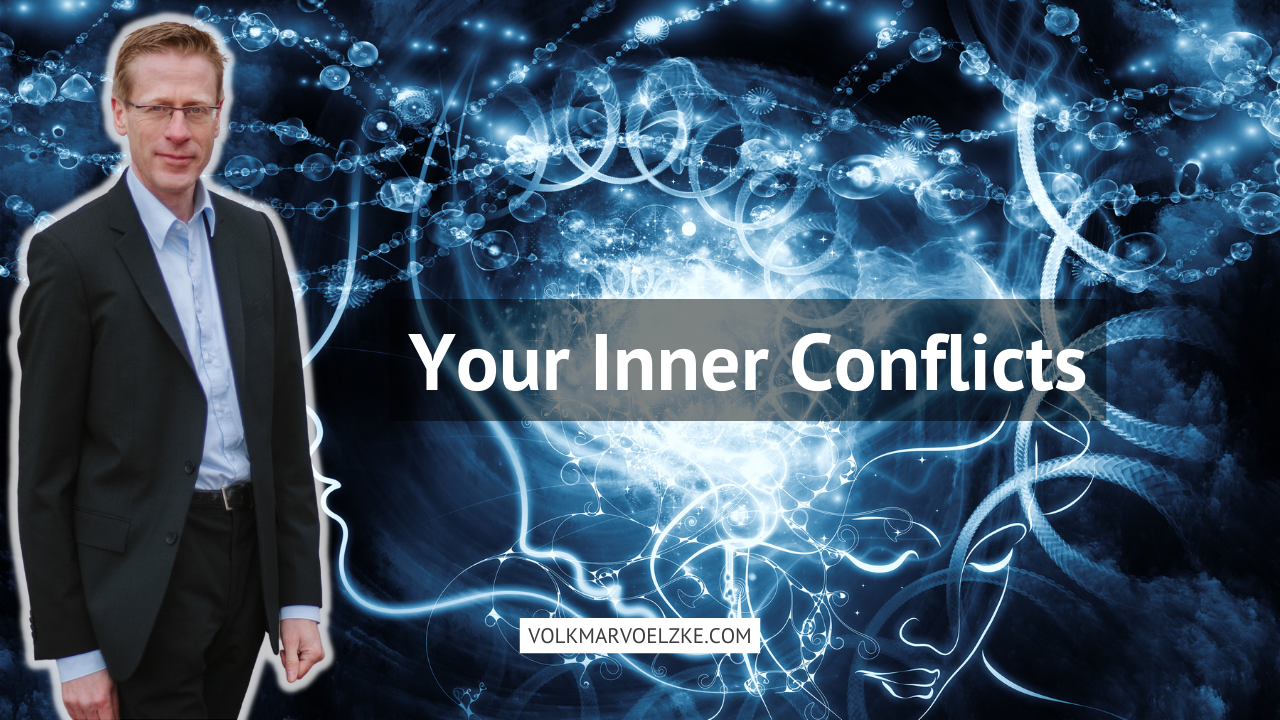
Chances are you know the psychological concept of “inner conflicts”. These are conflicts within each of us that prevent us from achieving more than we actually do, which do not let us start even great initiatives, and which make us avoid actions that contradict our goals.
Inner conflicts are the reason why so many people do not do more exercises, even if they know it would be good for them. They also let us get stuck in our career because even if we know what it takes to gain more influence and progress on the career ladder, we hesitate to act accordingly.
Our inner conflicts hold us back.
I cannot go into too much detail here in this short memo, but inner conflicts stem from the deeply rooted belief system that we all carry with us from early childhood (and which can be changed, but only with willpower and effort – and most of the time only with a professional coach). These beliefs often conflict with our actual goals. Example: Many want to become a millionaire, but do not want t...
You Have All You Need! ✅

Here's a brutal truth: what you want is all already there.
You don't have to add or painstakingly create anything, just remove what gets in the way of what you want.
What do I mean by that?
Well, you may be familiar with Michelangelo's meaningful answer to the question of how he was able to create the statue of David that stands in Florence, which is so ingenious.
Michelangelo said: "The statue was always in the block of marble. The only thing I had to do was to remove the excess marble."
This shows a fundamentally different mindset than we are used to most of the time:
It's based on trusting that all the solutions we're looking for are, in principle, already there. We just can't see them yet.
I think that takes enormous pressure off our efforts. After all, if it already somehow exists around us, we "just" have to recognize it and remove what keeps us disconnected.
How can we apply this realization in a very concrete way? Here are three basics, all of which you will find in Mic...
🙏🏻 Are you grateful enough?
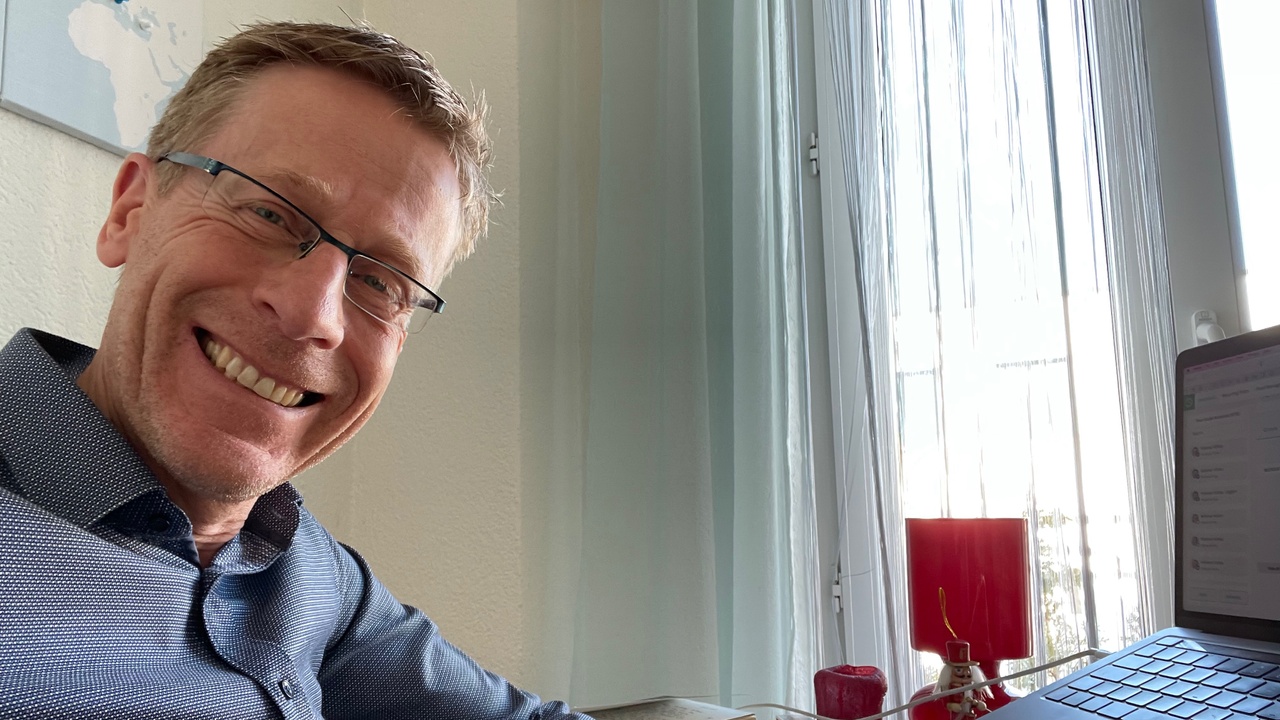
Question for today: What wonderful things are there in your life that you don't appreciate enough?
Here's an off-the-cuff list of simple things that I'm always grateful for (and that many people sadly don't have):
Hot water in the shower in the morning
Incredibly good health care
Buses and trains that you can simply rely on
Walking on the street at night without fear
Respectful interaction with each other
Nice people
Clean rivers and lakes
The possibility to travel
A heated apartment
Living in freedom
...
👉 What are your things you are grateful for?
🎧 Stop Listening To Yourself!

I don’t know about you, but most people are good at talking to others and not good at listening. There is an old, yet true leadership advice: to become more influential (hence a better leader, a better parent, a better sales person), start talking less and listening more.
I want to take this a step further: Most people listen too much to themselves and talk too much to others. What do I mean by this? Well, we all listen constantly to our own stories and beliefs that are rooted in our past. This hardwiring in our brain is a survival mechanism, but here comes the twist: It prevents us from growing, and if we talk too much to others instead of listening, it makes it even worse.
Here’s my suggestion: listen less to yourself and more to others. And: talk less to others and more to yourself.
“Talking to yourself” means that you consciously choose the thoughts that you want to guide your decisions and actions. As this sounds a bit theoretical, here are three powerful examples that you ca...
